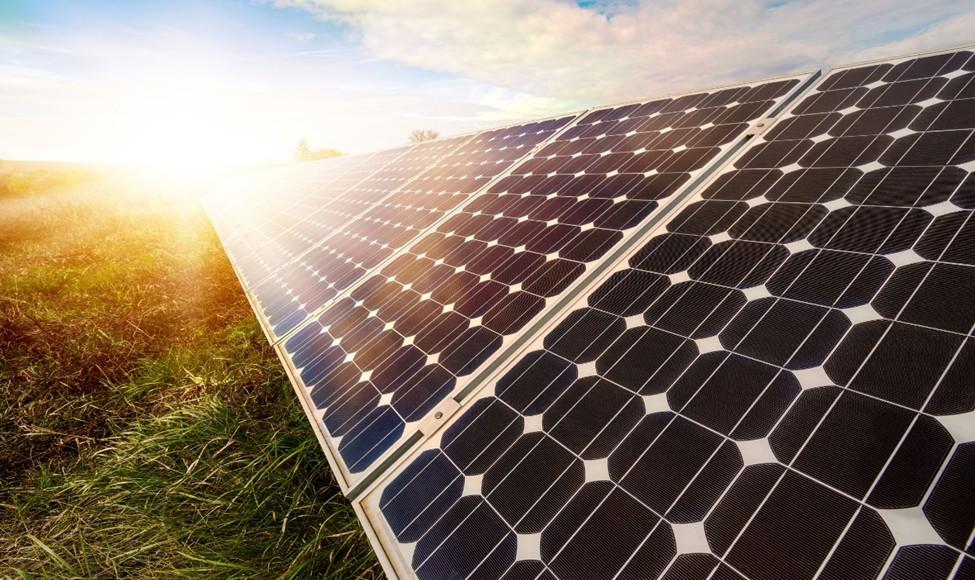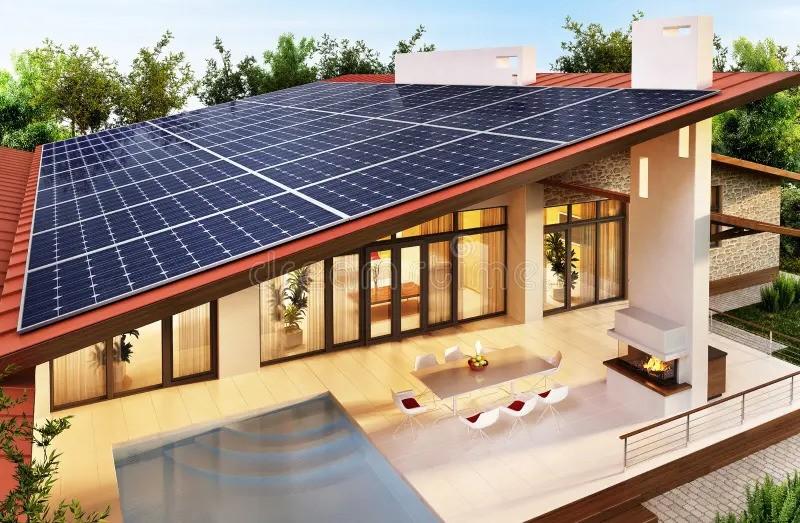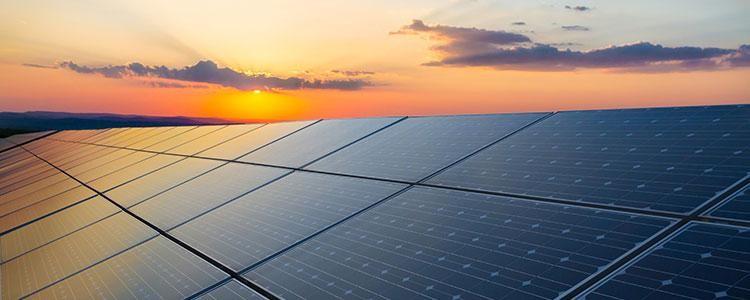Embracing Solar Panels: Harnessing Solar Power for a Bright Future Ahead Table of Contents Table of Contents 1 Illuminating the Path to Sustainability.........................................................................................2 Understanding How Solar Panels Work.......................................................................................2 The Benefits of Solar Panels 2 Renewable Energy Source 2 Reduced Electricity Bills............................................................................................................3 Environmental Impact..............................................................................................................3 Installation Process 3 Site Assessment........................................................................................................................3 Design and Permitting..............................................................................................................4 Installation................................................................................................................................4 Inspection and Activation 4 Conclusion....................................................................................................................................4 FAQs.............................................................................................................................................5 How do solar panels work at night?.........................................................................................5 Are solar panels maintenance-free? 5 What is the lifespan of solar panels?.......................................................................................5 Do solar panels work on cloudy days?.....................................................................................5 How much space do I need for solar panels?..........................................................................5 Solar panels stand as a beacon of hope in our quest for sustainable energy solutions. With their ability to harness the sun's abundant energy and convert it into electricity, this article delves into the world of solar panels, exploring their functionality, advantages, installation process, and frequently asked questions. Solar panels also provide economic advantages by reducing electricity bills and offering potential incentives and rebates. Their versatility allows for
installation on various surfaces, from rooftops to open fields, making them accessible in diverse settings worldwide.
Illuminating the Path to Sustainability
Photovoltaic (PV) panels, comprising solar cells, absorb sunlight and convert it into electricity, serving as sustainable energy sources. Solar panels, constructed of solar cells, convert sunlight into electrical energy using the photovoltaic process. These panels are typically mounted on rooftops or in open areas where they can receive maximum sunlight exposure.
Solar panels consist of multiple interconnected solar cells, usually made of silicon, which generate direct current (DC) electricity when exposed to sunlight. This electricity is then converted into alternating current (AC) through an inverter, making it compatible with household appliances and the electrical grid.

Understanding How Solar Panels Work
Solar system operate based on the principle of the photovoltaic effect, wherein sunlight photons strike the surface of the solar cells, causing the release of electrons. These free electrons create an electric current, which is then captured and harnessed for various purposes. Solar panels are composed of multiple silicon cells, which generate electricity when exposed to sunlight through the photovoltaic effect.
The Benefits of Solar Panels
Renewable Energy Source
Solar panels harness sunlight, a virtually limitless resource, making them a sustainable energy solution. Solar panels are an essential component of the renewable energy landscape, offering reliability and scalability for both residential and commercial energy needs.
Reduced Electricity Bills
By generating your electricity, solar panels can significantly lower your reliance on the grid, resulting in reduced energy costs. Solar panels often come with incentives and tax credits, further reducing the overall cost of installation and accelerating the payback period for homeowners. This financial benefit makes solar energy an attractive long-term investment, offering both immediate and sustained savings on electricity bills.
Environmental Impact
Solar energy production produces no greenhouse gas emissions, helping to mitigate climate change and reduce air pollution. Solar panels require minimal water usage compared to traditional energy sources like coal or natural gas, making them environmentally friendly in terms of water conservation. This further reduces their overall ecological footprint and contributes to the preservation of water resources for future generations.

Installation Process
Site Assessment
A Pro West Solar Systems evaluates your property's suitability for solar panel installation, considering factors such as roof orientation, shading, and structural integrity. The assessment also takes into account local regulations and permits required for solar installations, ensuring compliance with building codes and zoning laws. Additionally, professionals may provide recommendations for optimizing energy efficiency through other means, such as insulation upgrades or window treatments.
Design and Permitting
Engineers design a customized solar panel system based on your energy needs and obtain necessary permits from local authorities. Once our solar panel system design is finalized, engineers meticulously handle the permitting process, ensuring compliance with local regulations and codes. This comprehensive approach guarantees a seamless transition from design to installation, maximizing the efficiency and legality of your renewable energy solution.

Installation
Solar panels are mounted on your roof or in a designated area, connected to an inverter, and integrated into your electrical system. The solar panels absorb sunlight and convert it into electricity through photovoltaic cells. This electricity is then directed to the inverter, where it is converted from direct current (DC) to alternating current (AC) suitable for use in your home or business.
Inspection and Activation
After installation, a final inspection ensures compliance with regulations before activating the system for use. This inspection involves meticulous checks to verify that all components are
installed correctly and functioning as intended. Once approved, activation of the system is executed cautiously to prevent any potential risks or malfunctions during operation.
Conclusion
In the quest for sustainable energy solutions, commercial solar panels stand out as a beacon of promise, offering a clean, renewable alternative to traditional power sources. Through the ingenious harnessing of sunlight, solar panels illuminate the path to a brighter, more sustainable future. Their functionality, versatility, and economic benefits make them a compelling choice for both residential and commercial applications. By reducing electricity bills, mitigating environmental impact, and offering long-term savings, solar panels empower individuals and businesses to embrace a greener, more sustainable lifestyle

FAQs
How do solar panels work at night?
Solar panels do not generate electricity at night since they require sunlight to function. However, excess energy generated during the day can be stored in batteries or credited back to the grid through net metering for use during nighttime.
Are solar panels maintenance-free?
While solar panels require minimal maintenance, periodic cleaning and inspections are recommended to ensure optimal performance. This may include removing debris, checking for shading, and inspecting electrical connections.
What is the lifespan of solar panels?
Most solar panels come with warranties ranging from 25 to 30 years, with many panels continuing to operate efficiently beyond their warranty period. Proper maintenance and care can extend the lifespan of solar panels.
Do solar panels work on cloudy days?
Solar panels can still generate electricity on cloudy days, albeit at reduced efficiency compared to sunny conditions. Advances in solar panel technology have improved their ability to capture diffuse sunlight, allowing for continued energy production even in overcast weather.
How much space do I need for solar panels?
The amount of space required for solar panels depends on factors such as energy consumption, panel efficiency, and available sunlight. A professional assessment can determine the optimal placement and number of panels for your specific needs

Get Social with us: Facebook | Instagram Email us: info@prowestsolar.ca Contact us: 587-603-5744





